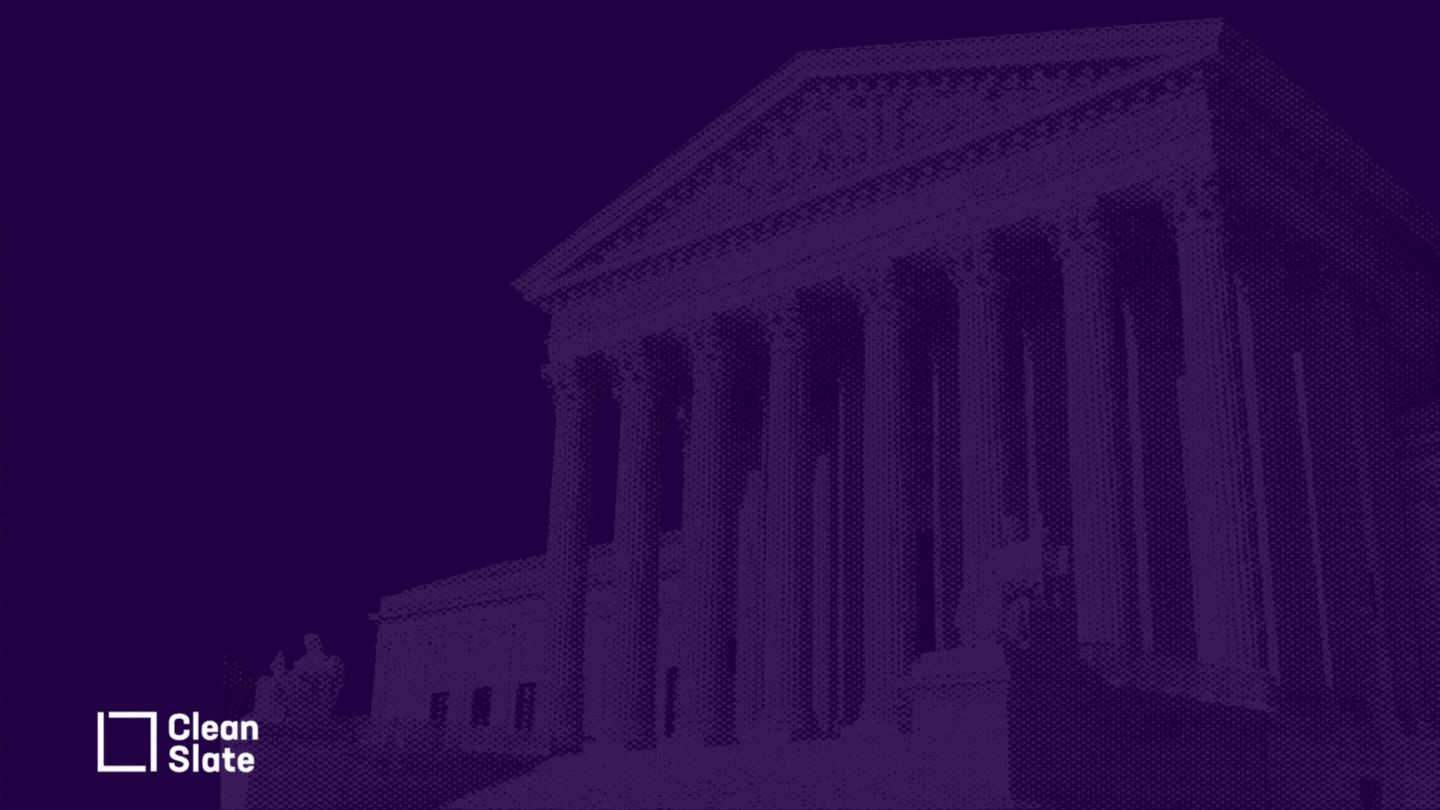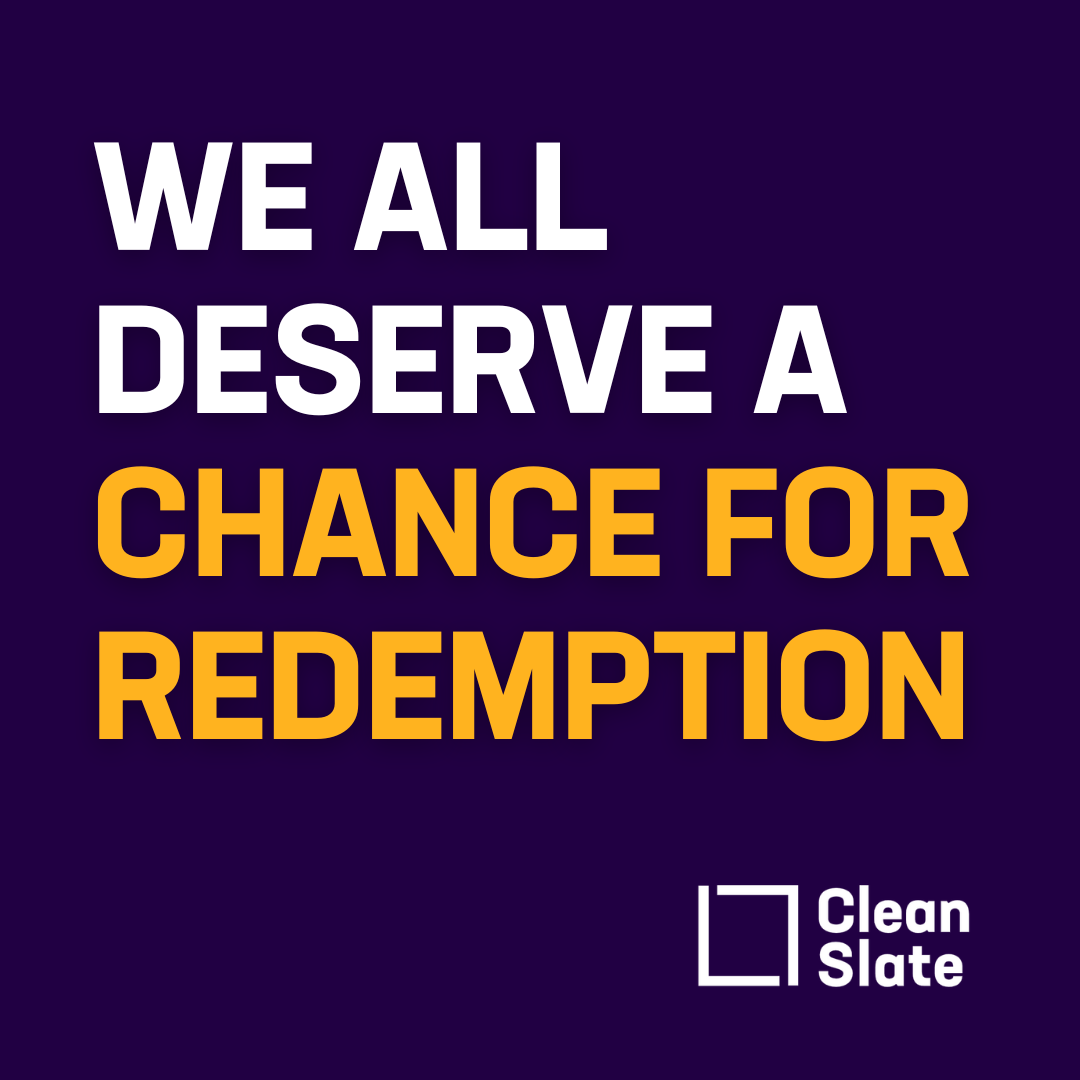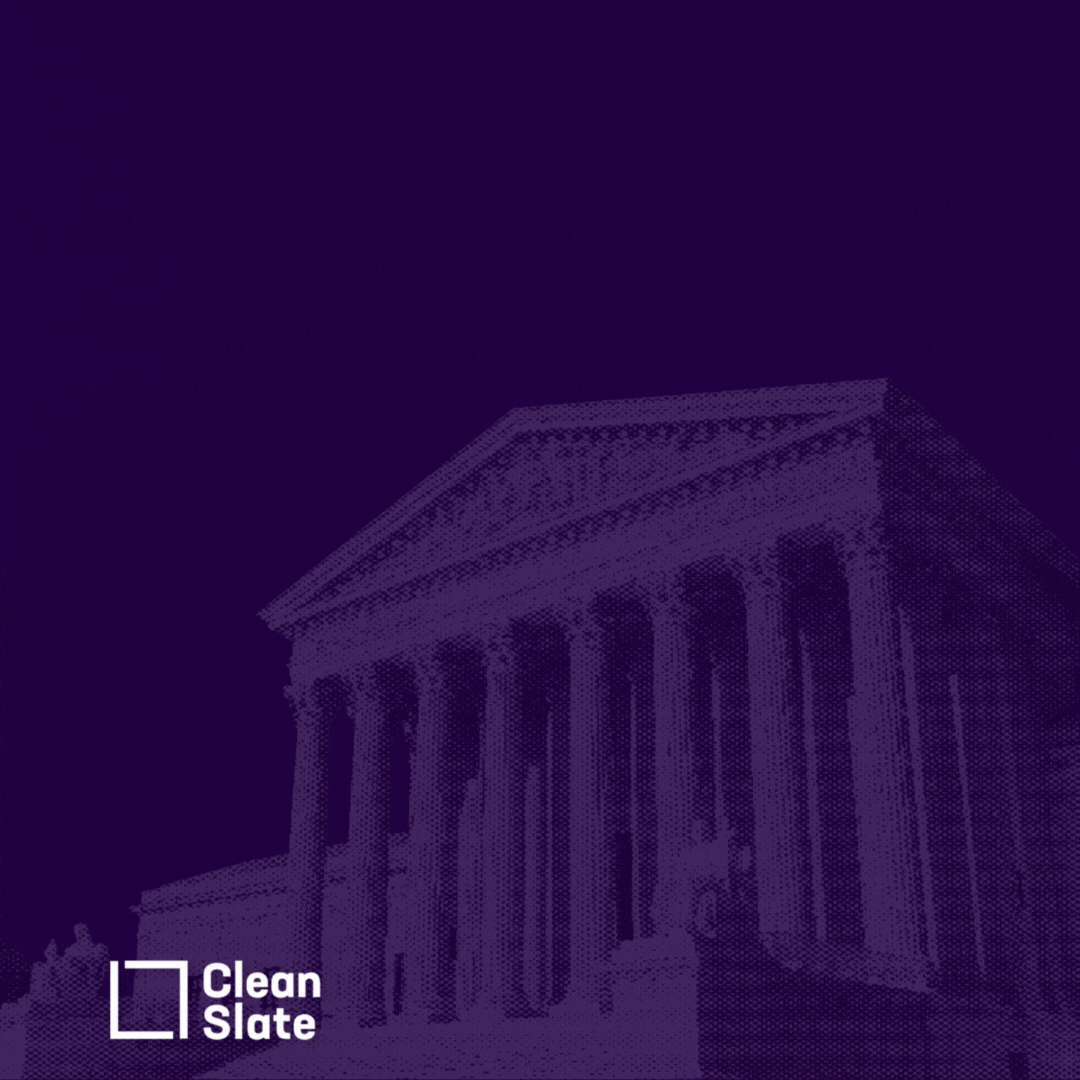Clean Slate Communications Toolkit
2022 Holiday Edition
Almost everyone has experienced family drama around the holidays. That crazy uncle who makes a statement that would have been much better left unsaid, the cousin who loves to stir the pot, the grandmother who asks pointed personal questions no one has good answers for — the list goes on. If you have no idea what we’re talking about, consider yourself lucky (and can we come to your family gatherings?).
Sometimes family drama just leaves an uncomfortable tension. Sometimes it causes huge rifts. Here’s the thing, though: when we experience these situations, there’s always an underlying thread: forgiveness. We give our loved ones a second (or third or fourth) chance… because they’re family.
That’s why the holidays are perfect for talking about Clean Slate.
But what’s the best way to talk about Clean Slate with family, friends, and even online during the holiday season? The best approach is to remind people that even when we disagree on policies, we still share a lot of the same values:
Everyone wants to provide for their family and make sure they are safe;
We should all be able to agree that everyone deserves a shot at redemption; and
Surely we can find common ground in the idea that America should not have a two-tiered system of justice, where the wealthy can afford to buy a second chance and working families are left behind.
Below, you’ll find videos that highlight the need to put people first by ensuring everyone has a fair shot at life. There are also facts, talking points, templates, and more to equip you - and your organization - to talk about the importance of Clean Slate policies during the holidays.
If you have any questions or suggestions, send them over to communications@cleanslateinitiative.org. We welcome the feedback. After all, we’re like family.
Additional Toolkit Resources
Clean Slate Storytellers
In these personal stories, people share the barriers they face to building a better life after paying their debt to society and remaining crime free. The people highlighted are leaders in the movement for second chances who contribute to our communities — and their stories are great to spotlight around the holidays.
Scott
Louisiana
Maggie
Texas
Lukee
New York
Facts & Talking Points
-
A person’s whole life should not be defined by their worst mistake. The holidays are a season of gratitude, forgiveness, and giving — and those values are at the core of the Clean Slate movement.
• • •
There is no archetype of a person living with a record. Americans of all different races, genders, socio-economic statuses, and zip codes have had some kind of contact with the legal system that left them burdened with a record.
• • •
Records can create roadblocks that make rebuilding a person’s life harder than it needs to be. Living with a record should not mean living in a continuum of incarceration and poverty.
• • •
Everyone in America should have a fair opportunity to make a living, take care of their families, and participate in their communities. Even when people make mistakes or commit crimes, if they have done their time and now live crime-free, they deserve a second chance at freedom and opportunity.
• • •
Even if you don’t have a record, a third of Americans do. So, chances are, someone you care about is living with the burden of a record. As you celebrate the holidays this season, consider the gift that a second chance would be for those folks.
• • •
New years are all about new beginnings: a fresh start on a fitness plan, a clean slate on a to-do list, another chance at a better year ahead. Normalizing fresh starts, second chances, and new beginnings in the context of the Clean Slate movement is a resolution we can all accomplish together.
-
Between 70 million and 100 million Americans—1 in 3—now have some type of arrest or conviction record.
• • •
Nearly half of all U.S. children now have at least one parent with a record.
• • •
Nearly 9 in 10 employers, 4 in 5 landlords, and 3 in 5 colleges use background checks to screen applicants.
• • •
Applicants with a record are half as likely as other job seekers to get a callback from an employer.
• • •
There are more than 44,000 state and federal regulatory restrictions that limit individuals with conviction and non-conviction records from accessing employment, occupational licensing, housing, public benefits, voting, education, and other opportunities.
• • •
Shutting people out of the labor market due to arrest and conviction records costs the U.S. economy an estimated $78-87 billion per year in lost GDP.
• • •
On average, the wages of people who receive expungements increase by more than 20 percent just one year after a record has been cleared.
• • •
Clean Slate policies have broad bipartisan support. 70 percent of Americans support Clean Slate policies—including 66 percent of Republicans and 75 percent of Democrats.
• • •
Since its inception, the Clean Slate Initiative has helped pass legislation that provides a path for:
2.3 million people to have at least one conviction or non-conviction cleared.
7.3 million conviction and non-conviction cases to be cleared.
2 million people to receive full record clearance.
-
Tens of millions of people—including many who have never been convicted—are saddled with arrest or criminal records that block their access to jobs, housing, education, starting a business, or participating fully in social and civic community life.
• • •
When our loved ones, friends, neighbors, and community members are barred from fully participating in society and our economy, we all lose out. We can do better. A record should never be a life sentence to poverty, exclusion, and stigma.
• • •
The Clean Slate policy model empowers states to automatically seal or expunge qualifying records for people who remain crime-free for a set period of time.
• • •
In most states, record clearance is only possible through a time-intensive and costly petition-based process, which is inaccessible for many working people who are eligible for relief.
• • •
Automating the expungement process creates greater equity, consistency, and cost-effectiveness through a streamlined process that applies to all eligible records – regardless of a person’s race or wealth. We should not have a two-tiered system of justice where the wealthy have access to opportunities and working families are left behind.
• • •
Eligibility for expungement doesn’t always mean access to expungement — that’s why the Clean Slate Initiative model also works to expand eligibility within state statutes so that more people can experience the second chance that comes from an expunged record.
-
Clean Slate Improves Public Safety
Individuals should be held accountable in a way that ensures the harm caused does not occur again. However, holding a person's past over their head does not deter future crime; instead, stigmatizing individuals with records decreases public safety by limiting opportunities for working people and their families.
• • •
Once individuals have been crime-free for a few years, they have reached what researchers call the "point of redemption," meaning the person is no more likely than anyone in the general population to commit a crime. There is broad bipartisan support for clearing records after the “point of redemption” as a means to increase public safety.
• • •
A research study done by Michigan Law found that those who are able to obtain expungements have very little risk of recidivism. People are much less likely to reoffend if they are able to get a job, afford decent housing, get an education, and take care of their families.
Clean Slate Supports Families and Personal Responsibility
Most people living with a record are willing to put in the hard work to rebuild their lives, but barriers to education, employment, housing, credit, and other opportunities can make their journey seem impossible.
• • •
When a parent cannot clear their record, their children bear the consequences, too. Nearly half of the children in the United States have a parent with some kind of record, which impacts family stability. Adverse long-term effects for innocent children who have parents with records range from poor performance in school to hindered cognitive development.
• • •
Clean slate record clearing policies support families and promote personal responsibility. A cleared record leads to more opportunities for people to obtain financial security, employment security, and a sense of dignity and purpose. Indeed, after a person's record is cleared, research proposes their income rises by about 22 percent.
Clean Slate Advances Limited Government
Clean slate policies can bypass harmful governmental barriers to economic participation by clearing records. A limited, effective government protects the life and liberty of its citizens without creating excessive regulations, interference, or taxes. However, most record-clearing processes are highly burdensome.
• • •
Many states also ban people with certain records from obtaining occupational licenses. Clean slate policies help reverse some issues by automating expungement and eliminating the unchecked inefficiency of the current process.
Clean Slate Facilitates Workforce Development
Having a record shouldn’t mean that you can’t find stable employment with a living wage, but far too often, that’s exactly what happens. Record clearance means more access to jobs for people who are willing to work, but are often denied good opportunities for employment.
• • •
Amid a labor shortage and the great resignation, the American workforce needs development and revitalization. Clean Slate policies can benefit employers by expanding the applicant pool of individuals who are qualified to work. Recent research found that a year after record clearance, people are 11 percent more likely to be employed and earn 22 percent higher wages.
Notes:
All of these sample posts are optimized to fit the Twitter character count. Feel free to customize to your needs.
Tag us!
Twitter: @cleanslate_init
Instagram: @cleanslateinitiative
Facebook: @CSICleanSlateInitiative
LinkedIn: Clean Slate Initiative
• • •
With the 2022 election behind us, it’s time for legislators to work together to pass #CleanSlate laws that give working families a meaningful chance at a better life. We need to expand access & automate the record clearance process. People deserve #SecondChances & a #cleanslate!
• • •
The movement for #SecondChances is growing. 8 states have passed #cleanslate laws and @cleanslate_init is working with partners across the country to pass more. Learn more about Clean Slate policies at https://www.cleanslateinitiative.org/states
• • •
Every day, 70-100 million people in the U.S. are denied access to meaningful employment, housing, education, and other opportunities because of a record. Working families deserve better. We all deserve a shot at redemption. #CleanSlate
• • •
Old arrest and conviction records wall people off from opportunity. It’s time to end life sentences to poverty, exclusion, and stigma by giving folks a real #CleanSlate. Learn more about efforts throughout the country at https://www.cleanslateinitiative.org/states
• • •
The holidays are a season of gratitude, forgiveness, and giving — and those values are at the core of the #CleanSlate movement. Together, we can live our values by automating record clearance and expanding eligibility for expungement. Get involved at CleanSlateInitiative.org.
• • •
As we celebrate the holidays this season, consider the gift that a #secondchance would be for your loved ones living with a record. If we work together, we can make it happen for the millions of Americans who need a #CleanSlate. Learn more at CleanSlateInitiative.org.
• • •
The start of a new year is the perfect time to get involved in the #CleanSlate movement. We closed out 2022 with legislation passed in 8 states, active campaigns in 7 more, and momentous legislation moving on the federal level. Join the movement at CleanSlate Initiative.org.












